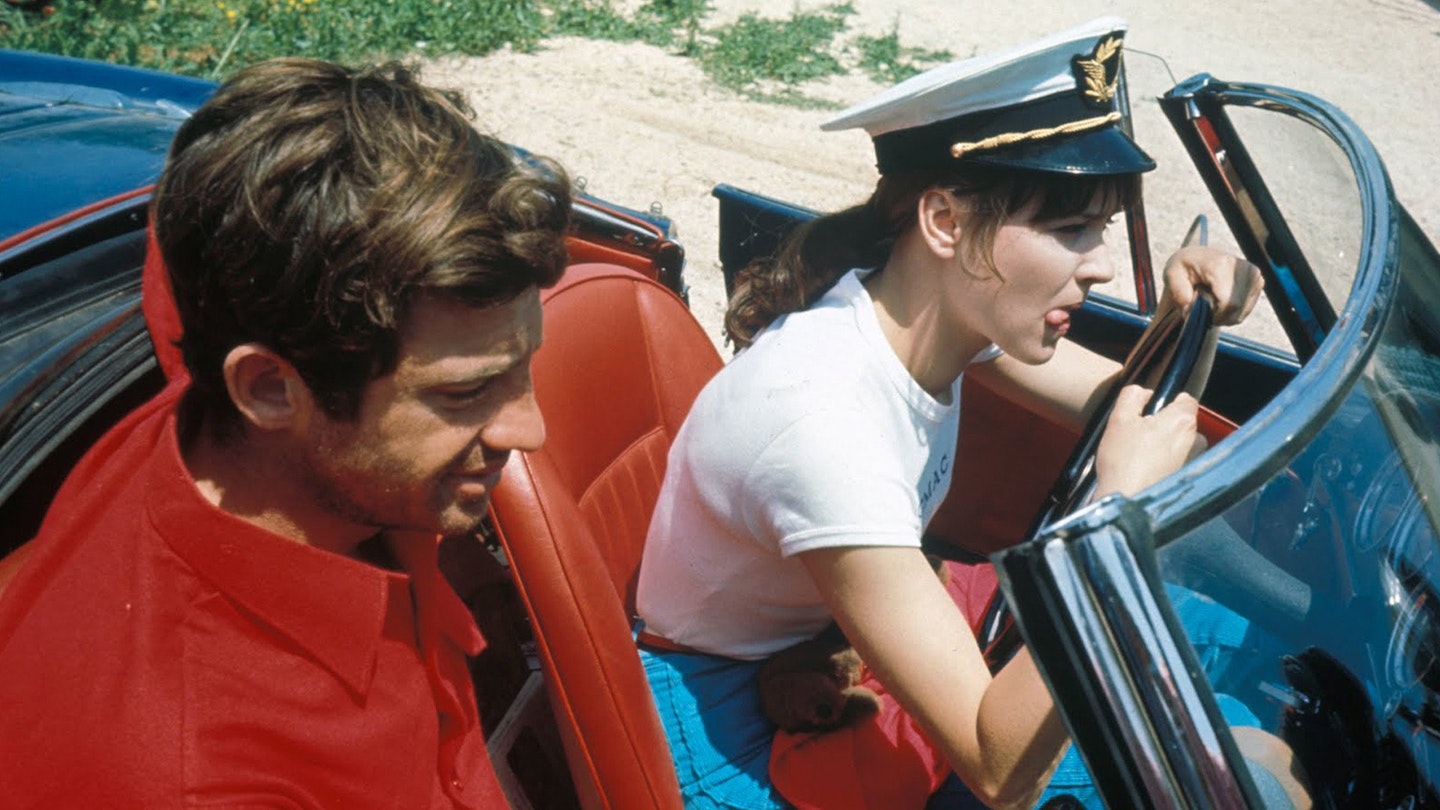Having freely adapted Lionel White's pulp novel, Obsession, Jean-Luc Godard considered casting pop star Sylvie Vartan and Richard Burton before plumping for then-wife Anna Karina and Jean-Paul Belmondo in what he claimed to be `the story of the last romantic couple, the last descendants of La Nouvelle Heloise, Werther and Hermann and Dorothea'. Suggesting it was more of an essay than a movie, Godard made endless references to such artists as Velazquez, Renoir and Picasso, novelists and poets like Céline, Bernardin de Saint-Pierre, Rimbaud and Lorca, and film-makers of the calibre of Sergei Eisenstein, Jean Renoir and Samuel Fuller, who even took a cameo to reinforce both the Hollywood maverick's contention that life was like a battlefield and Godard's self-fulfilling status as an outsider.
Embracing his reputation as the enfant terrible of the nouvelle vague, Godard abandoned the conventions of narrative cinema and adopted a loose picaresque format around which he could arrange subversive generic tropes, poetic digressions, political ideas and comic-book escapades. Consequently, he was able to achieve within the same anti-gangster picture a structural experiment, a confessional thriller, a treatise on cinema and a socio-cultural tract.
More than ever before, Godard employed Brechtian distancing devices to rouse the audience out of its complacent passivity, with the cast directly addressing the camera and an off-screen chorus commenting upon and occasionally anticipating action that was studded with quotations from literary sources and Ferdinand's diary, song interludes and disconcerting shifts in colour and style, such those as during the Parisian party, where the dialogue was taken from advertising copy for cars, deodorants and hairspray.
Yet, for all its cocky aggression, this is also a highly pessimistic picture, in which Ferdinand serves as Godard's alter ego, as he rails against consumerism, intellectual debasement, American imperialism, the breakdown of communication and the alienating mechanisation of urban living. But rather than merely extending the assault on modernity begun in Alphaville, Godard gives the first intimation of the political commitment that would come to dominate his work from 1966 onwards.
